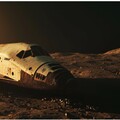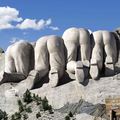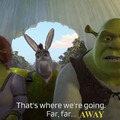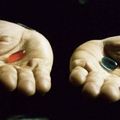What can an IT guy do if he happens to be a history buff? He goes for the overlapping area, that is the history of computer science. The quiz below is from the Summer closing party of 2016. It was allowed to use their mobile phones to solve it. Then a quite amazing thing happened: a group of 3 HR ladies + 1 engineer won the competition with a fair margin out of 170 participants. Their secret weapon: they split the task into four subsets and googled very efficiently.
So here we go, happy solving. The cheat sheet comes right after the questions, so do not scroll down too fast if you want to have fun!
| Achievements |
| The inventor of the punched card loom - 1801 |
| The designer of the Analytical Engine - 1837 |
| The daughter of a famous English poet who wrote the algorithm for the Analytical Engine to compute Bernoulli numbers - 1842 |
| The inventor of the Boolean algebra - 1854 |
| The inventor of the punched card tabulator - 1889, the founder of The Tabulating Machine Company (IBM from 1924) - 1911 |
| The most famous codebreaker - deciphering the ENIGMA - 1941 |
| The designer of the Colossus – 1944 ( the world's first programmable, electronic, digital computer, although it was programmed by switches and plugs and not by a stored program.) |
| The inventor of the differential analyzer , the author of the seminal paper “As we may think” - 1945 |
| A Hungarian polymath who created the The stored-program concept and wrote the First Draft of a Report on the EDVAC - 1945 |
| The original conceptual designer behind IBM’s - Harvard Mark I – 1944 (a general purpose electromechanical computer) |
| The designers fo ENIAC – the firstTuring complete digital all-purpose computer – 1946 and the EDVAC - 1949 |
| The inventors of the transistor - 1947 |
| The dean of Stanford University, the father of Silicon Valley - 1956 |
| Inventor of the first complier, the grandmother of COBOL - 1959 |
| The founder of Digital Equipment Corp - the company that created the first minicomputer, the PDP-1 - 1959 |
| The inventor of the microchip at Texas Instruments - 1959 |
| The inventor of the microchip at Fairchild Semiconductor – 1959, co-founder of Intel - 1968 |
| The creator of the mathematical theory of packet networks - 1961 |
| Author of the concept of packet switched networks United Kingdom - 1967 |
| Author of the concept of packet switched networks - USA – 1964 (later ARPANET - 1969) |
| The guy who managed the development of IBM's System/360 family of computers and the OS/360 The IBM's System/360 – 1965, the author of the “The Mythical Man-Month” |
| The designer of the on-board flight software for the Apollo space program - 1968 |
| The author of Moore’s law – 1965, Co-founder of Intel - 1968 |
| Hungarian born CEO of Intel, the author of the book “Only the paranoid survive” |
| A pioneer in Concurrent programming, the mutual exclusion and Distributed computing - 1965 |
| The inventor of the mouse, a pioneer of human-computer interaction - 1968 |
| The creator of PASCAL - 1970 |
| the inventors of TCP/IP - 1972 |
| The founders of Microsoft – 1975 |
| Designer of several PDP machines, then overseeing the creation of the VAX - 1977 |
| The idea man behind the Dynabook –1972, the inventor of OOP, GUI, the designer of Smalltalk at XEROX PARC |
| The designer of XEROX Alto – 1973, the inspiration for the Macintosh |
| The founder of MITS, the designer of MITS Altair - 1975 |
| The designer of Apple I – 1976, and Apple II – 1977 |
| The authors of the original Unix and the C language - 1978 |
| The guy behind the first BSD Unix - 1977, the creator of NFS, one of the co-founders of SUN Microsystems - 1982 |
| The inventors of the Ethernet at XEROX PARC- 1980 |
| The initiator of the GNU project - 1983 and the Free Software Foundation - 1985 |
| The father of the Web, the creator of HTTP - 1989 |
| The creator of Linux - 1991 |
| A key OS designer, who created RSX, VMS and later at MSFT designed Windows NT 3.1 - 1993 |
| The father of Java - 1995 |
This space is left blank intentionally - do not scroll down unless you are done with your guesswork!
Cheat sheet
Names - Achievements - References
Joseph Marie Jacquard - The inventor of the punched card loom - 1801
https://en.wikipedia.org/wiki/Joseph_Marie_Jacquard
Charles Babbage - The designer of the Analytical Engine - 1837
https://en.wikipedia.org/wiki/Charles_Babbage
Ada Lovelace - The daughter of a famous English poet who wrote the algorithm for the Analytical Engine to compute Bernoulli numbers - 1842
https://en.wikipedia.org/wiki/Ada_Lovelace
George Boole - The inventor of the Boolean algebra - 1854
https://en.wikipedia.org/wiki/George_Boole
Herman Hollerith - The inventor of the punched card tabulator - 1889, the founder of The Tabulating Machine Company (IBM from 1924) - 1911
https://en.wikipedia.org/wiki/Herman_Hollerith
Alan Turing - The most famous codebreaker - deciphering the ENIGMA - 1941
https://en.wikipedia.org/wiki/Alan_Turing
Tommy Flowers - The designer of the Colossus – 1944 ( the world's first programmable, electronic, digital computer, although it was programmed by switches and plugs and not by a stored program.)
https://en.wikipedia.org/wiki/Tommy_Flowers
Vannevar Bush - The inventor of the differential analyzer , the author of the seminal paper “As we may think” - 1945 https://en.wikipedia.org/wiki/Vannevar_Bush
John von Neumann - A Hungarian polymath who created the The stored-program concept and wrote the First Draft of a Report on the EDVAC - 1945 https://en.wikipedia.org/wiki/John_von_Neumann
Howard H. Aiken - The original conceptual designer behind IBM’s - Harvard Mark I – 1944 (a general purpose electromechanical computer) https://en.wikipedia.org/wiki/Howard_H._Aiken
John Mockley and J. Presper Eckert - The designers fo ENIAC – the first Turing complete digital all-purpose computer – 1946 and the EDVAC - 1949
https://en.wikipedia.org/wiki/John_Mauchly
https://en.wikipedia.org/wiki/J._Presper_Eckert
William Shockley - John Bardeen - Walter Houser Brattain - The inventors of the transistor - 1947
https://en.wikipedia.org/wiki/William_Shockley
https://en.wikipedia.org/wiki/John_Bardeen
https://en.wikipedia.org/wiki/Walter_Houser_Brattain
Frederick Terman - The dean of Stanford University, the father of Silicon Valley - 1956
https://en.wikipedia.org/wiki/Frederick_Terman
Grace Hopper - Inventor of the first complier, the grandmother of COBOL - 1959
https://en.wikipedia.org/wiki/Grace_Hopper
Ken Olsen - The founder of Digital Equipment Corp - the company that created the first minicomputer, the PDP-1 - 1959 https://en.wikipedia.org/wiki/Ken_Olsen
Jack Kelby - The inventor of the microchip at Texas Instruments - 1959
https://en.wikipedia.org/wiki/Jack_Kilby
Robert Norton Noyce - The inventor of the microchip at Fairchild Semiconductor – 1959, co-founder of Intel - 1968
https://en.wikipedia.org/wiki/Robert_Noyce
Leonard Kleinrock - The creator of the mathematical theory of packet networks - 1961
https://en.wikipedia.org/wiki/Leonard_Kleinrock
Donald Davies - Author of the concept of packet switched networks United Kingdom - 1967
https://en.wikipedia.org/wiki/Donald_Davies
Paul Baran - Author of the concept of packet switched networks - USA – 1964 (later ARPANET - 1969)
https://en.wikipedia.org/wiki/Paul_Baran
Fred Brooks - The guy who managed the development of IBM's System/360 family of computers and the OS/360 The IBM's System/360 – 1965, the author of the “The Mythical Man-Month”
https://en.wikipedia.org/wiki/Fred_Brooks
Margaret Hamilton - The designer of the on-board flight software for the Apollo space program - 1968
https://en.wikipedia.org/wiki/Margaret_Hamilton
Gordon Moore - The author of Moore’s law – 1965, Co-founder of Intel - 1968
https://en.wikipedia.org/wiki/Gordon_Moore
Andy Grove - Hungarian born CEO of Intel, the author of the book “Only the paranoid survive”
https://en.wikipedia.org/wiki/Andrew_Grove
Edsger W. Dijkstra - A pioneer in Concurrent programming, the mutual exclusion and Distributed computing - 1965
https://en.wikipedia.org/wiki/Edsger_W._Dijkstra
Douglas Engelbart - The inventor of the mouse, a pioneer of human-computer interaction - 1968
https://en.wikipedia.org/wiki/Douglas_Engelbart
Niklaus Wirth - The creator of PASCAL - 1970
https://en.wikipedia.org/wiki/Niklaus_Wirth
Vinton Cerf and Bob Kahn - the inventors of TCP/IP - 1972
https://en.wikipedia.org/wiki/Vint_Cerf
https://en.wikipedia.org/wiki/Bob_Kahn
Paul Allen and Bill Gates - The founders of Microsoft – 1975
https://en.wikipedia.org/wiki/Paul_Allen
https://en.wikipedia.org/wiki/Bill_Gates
Gordon Bell - Designer of several PDP machines, then overseeing the creation of the VAX - 1977
https://en.wikipedia.org/wiki/Gordon_Bell
Alan Kay - The idea man behind the Dynabook –1972, the inventor of OOP, GUI, the designer of Smalltalk at XEROX PARC
https://en.wikipedia.org/wiki/Alan_Kay
Charles P. Thacker - The designer of XEROX Alto – 1973, the inspiration for the Macintosh
https://en.wikipedia.org/wiki/Charles_P._Thacker
Ed Roberts - The founder of MITS, the designer of MITS Altair - 1975
https://en.wikipedia.org/wiki/Ed_Roberts
Steve Wozniak - The designer of Apple I – 1976, and Apple II – 1977
https://en.wikipedia.org/wiki/Steve_Wozniak
Dennis Ritchie and Ken Thompson - The authors of the original Unix and the C language - 1978
https://en.wikipedia.org/wiki/Dennis_Ritchie
https://en.wikipedia.org/wiki/Ken_Thompson
Bill Joy - The guy behind the first BSD Unix - 1977, the creator of NFS, one of the co-founders of SUN Microsystems - 1982
https://en.wikipedia.org/wiki/Bill_Joy
Robert Metcalfe and David Boggs - The inventors of the Ethernet at XEROX PARC- 1980
https://en.wikipedia.org/wiki/Robert_Metcalfe
https://en.wikipedia.org/wiki/David_Boggs
Richard Stallman - The initiator of the GNU project - 1983 and the Free Software Foundation - 1985
https://en.wikipedia.org/wiki/Richard_Stallman
Tim Berners-Lee - The father of the Web, the creator of HTTP - 1989
https://en.wikipedia.org/wiki/Tim_Berners-Lee
Linus Torvalds - The creator of Linux - 1991
https://en.wikipedia.org/wiki/Linus_Torvalds
Dave Cutler - A key OS designer, who created RSX, VMS and later at MSFT designed Windows NT 3.1 - 1993
https://en.wikipedia.org/wiki/Dave_Cutler
James Gosling - The father of Java - 1995
https://en.wikipedia.org/wiki/James_Gosling




